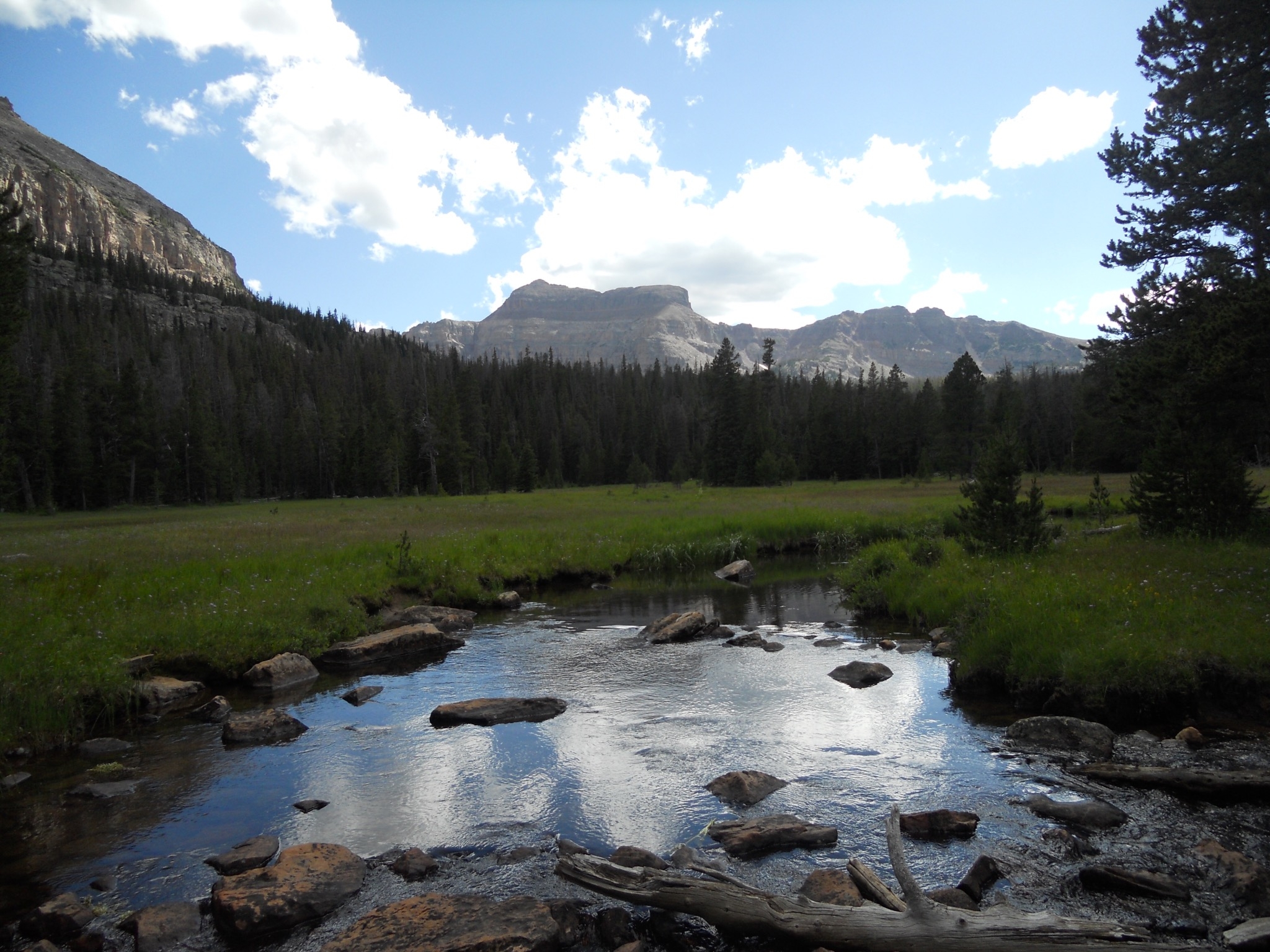by Sunni Brown Wilkinson
Mary Shelley penned Frankenstein after spending a chilly, wet summer near Lake Geneva. That terrain – the rugged Swiss Alps and that deep, blue water – coupled with the unusually stormy weather worked on her imagination. The wildness of it no doubt seemed unearthly.
Every summer over the last several years my husband, my dad, one or two of my brothers and I (when I’m not pregnant) all backpack into the High Uintas Wilderness in the northeast part of Utah. The lakes there are also deep and blue, and they are surrounded by jagged mountains filled with cougars and bears. King’s Peak, the highest mountain in Utah at 13, 527 feet, is in this range. Weather in the High Uintas is sketchy. Two summers ago a man died after being struck by lightning. He was returning from a hike to one of the peaks.
We camp at Hidden Lake, a spot at the end of an unmarked two-and-a-half mile trail. The men bustle around setting up camp, fishing, swimming, cooking meals. As the only female of the group, I am unapologetically lazy. I pull out my paperback novel or my book of poems and read by the lake. For two whole days.
One year I packed David Copperfield. It was my first real investment in Dickens, and I was blown away. I wanted to smack Mr. Murdstone and hug loveable Mr. Dick. I laughed out loud when David falls for Dora. His lovesickness made me giggle. And every turn in the story pulled me toward something that felt bigger than the story itself.
That bigger thing came my second night of reading. I sat in front of the fire absorbed in every word. The “Tempest” chapter details the shipwreck the adult David calls “an event in my life so awful” it throws “a shadow over my childish days.”
Page after page of terrible detail came like waves. Ham, the gentle, constant admirer of little Em’ly, throws himself into the sea to rescue survivors of a shipwreck, unaware that the last sailor on board the ship is the very man who ruined his own happiness.
At camp, the wind kicked up. It was cold. And the harder the men in the story swam in that frigid ocean water, the closer I drew to the fire. It was one of those rare times as a reader when I stopped reading a scene; I was seeing it, feeling it, firsthand.
There is something about remoteness that accommodates the extrasensory. If I had read David Copperfield on a sunny beach or a crowded bus, the impact of that shipwreck wouldn’t have been the same. As it is, when I imagine myself at Hidden Lake, I can see – far off – two men in the water; I see their sad deaths, and the way youth is both reckless and deeply heroic. I see the waves the wind is making on that dark mountain lake. A storm is coming. And I can believe in all kinds of ghosts.
Sunni Brown Wilkinson holds an MFA from Eastern Washington University. Her poetry has been published in Weber: The Contemporary West, Red Rock Review, Gulf Stream, Rock & Sling, and other journals and anthologies and has been nominated for two Pushcarts. She teaches at Weber State University and lives in Ogden, Utah with her husband and three young sons. She also blogs at www.allthelivelystones.blogspot.com
Photos by Kip Bremser

